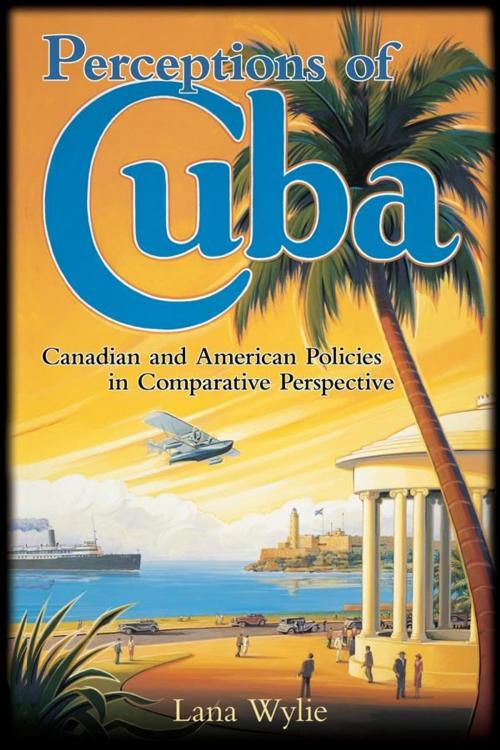Perceptions of Cuba
Canadian and American Policies in Comparative Perspective
Fiction & Literature, Literary Theory & Criticism, Caribbean & West Indian, Nonfiction, Social & Cultural Studies, Political Science, International, International Relations| Author: | Lana Wylie | ISBN: | 9781442699083 |
| Publisher: | University of Toronto Press, Scholarly Publishing Division | Publication: | March 20, 2010 |
| Imprint: | Language: | English |
| Author: | Lana Wylie |
| ISBN: | 9781442699083 |
| Publisher: | University of Toronto Press, Scholarly Publishing Division |
| Publication: | March 20, 2010 |
| Imprint: | |
| Language: | English |
In 1976, with the US trade embargo against Cuba underway, Canada's Prime Minister Pierre Elliott Trudeau visited the island nation, befriended his counterpart, and exclaimed publicly "Long live Prime Minister Fidel Castro!" During the past half-century of communist rule in Cuba, Canada's policy of engagement with the country has contrasted sharply with the United States' policy of isolation. Based on a series of interviews conducted in Havana, Washington, and Ottawa, Perceptions of Cuba moves beyond traditional economic and political analyses to show that national identities distinct to each country contributed to the formation of their dissimilar foreign policies.
Lana Wylie argues that Canadians and Americans perceive Cuba through different lenses rooted in their respective identities: American exceptionalism made Cuba the polar opposite of the United States, while Canada's self-image as a good international citizen and as 'not American' has allowed the country to engage with the Cuban government. By acknowledging that competing national identities, perceptions, and ideas play a major role in foreign policies, Perceptions of Cuba makes a significant contribution to our understanding of international relations.
In 1976, with the US trade embargo against Cuba underway, Canada's Prime Minister Pierre Elliott Trudeau visited the island nation, befriended his counterpart, and exclaimed publicly "Long live Prime Minister Fidel Castro!" During the past half-century of communist rule in Cuba, Canada's policy of engagement with the country has contrasted sharply with the United States' policy of isolation. Based on a series of interviews conducted in Havana, Washington, and Ottawa, Perceptions of Cuba moves beyond traditional economic and political analyses to show that national identities distinct to each country contributed to the formation of their dissimilar foreign policies.
Lana Wylie argues that Canadians and Americans perceive Cuba through different lenses rooted in their respective identities: American exceptionalism made Cuba the polar opposite of the United States, while Canada's self-image as a good international citizen and as 'not American' has allowed the country to engage with the Cuban government. By acknowledging that competing national identities, perceptions, and ideas play a major role in foreign policies, Perceptions of Cuba makes a significant contribution to our understanding of international relations.















